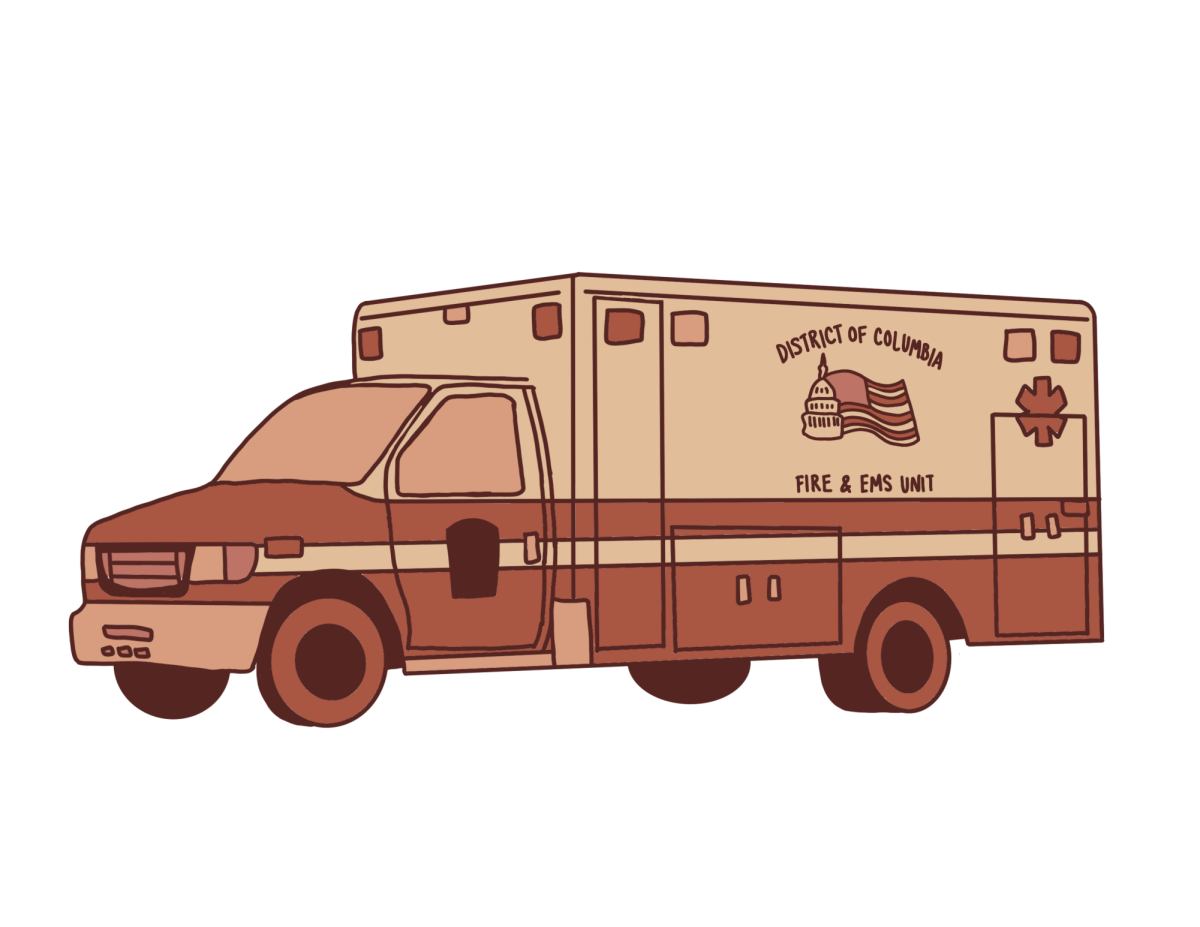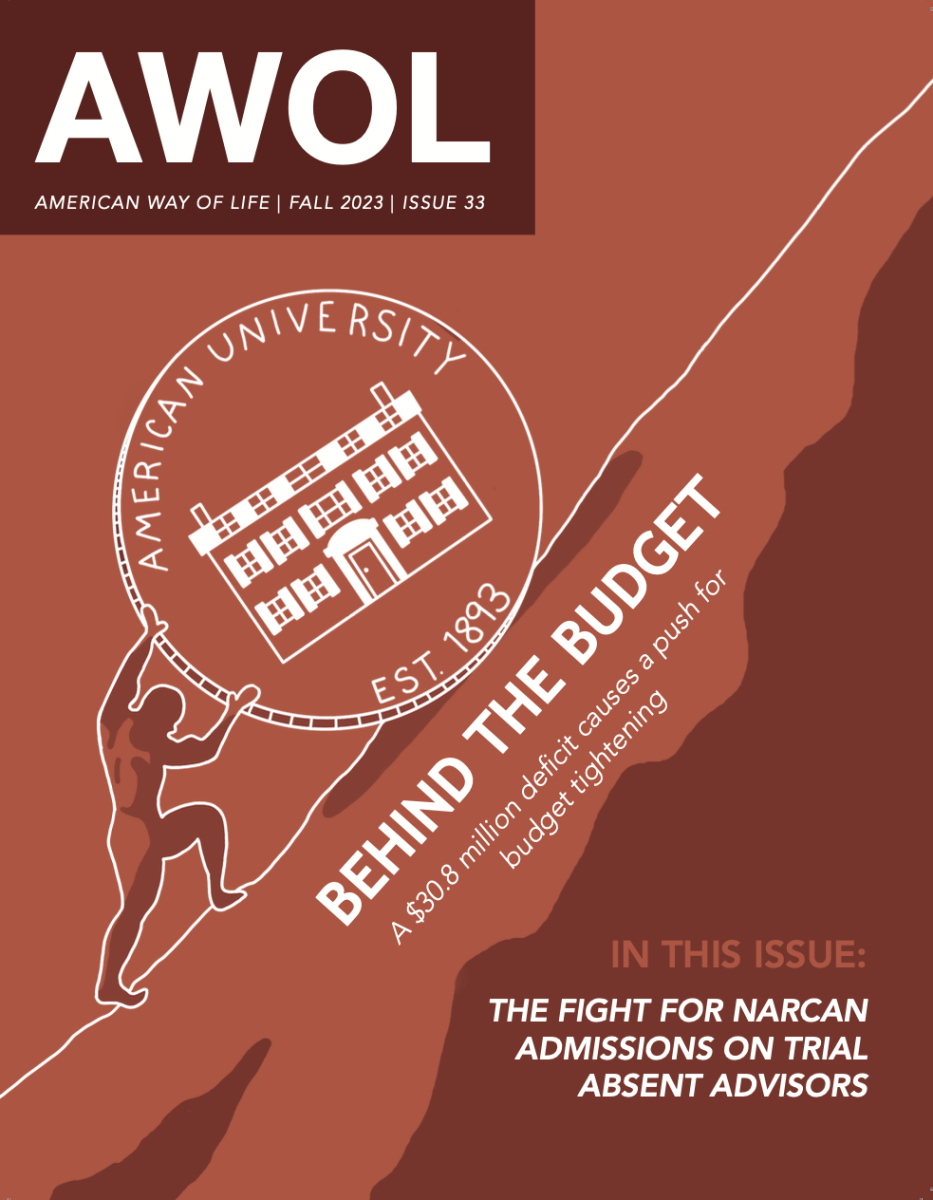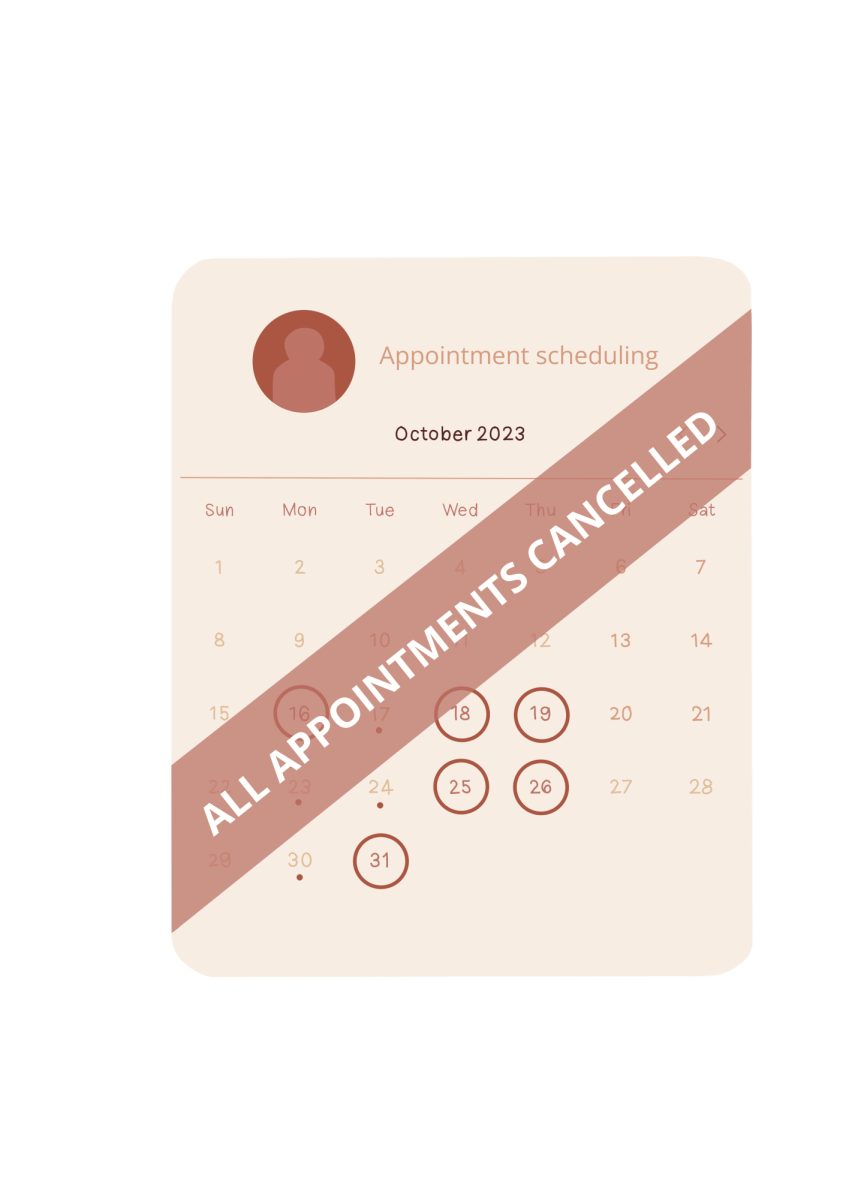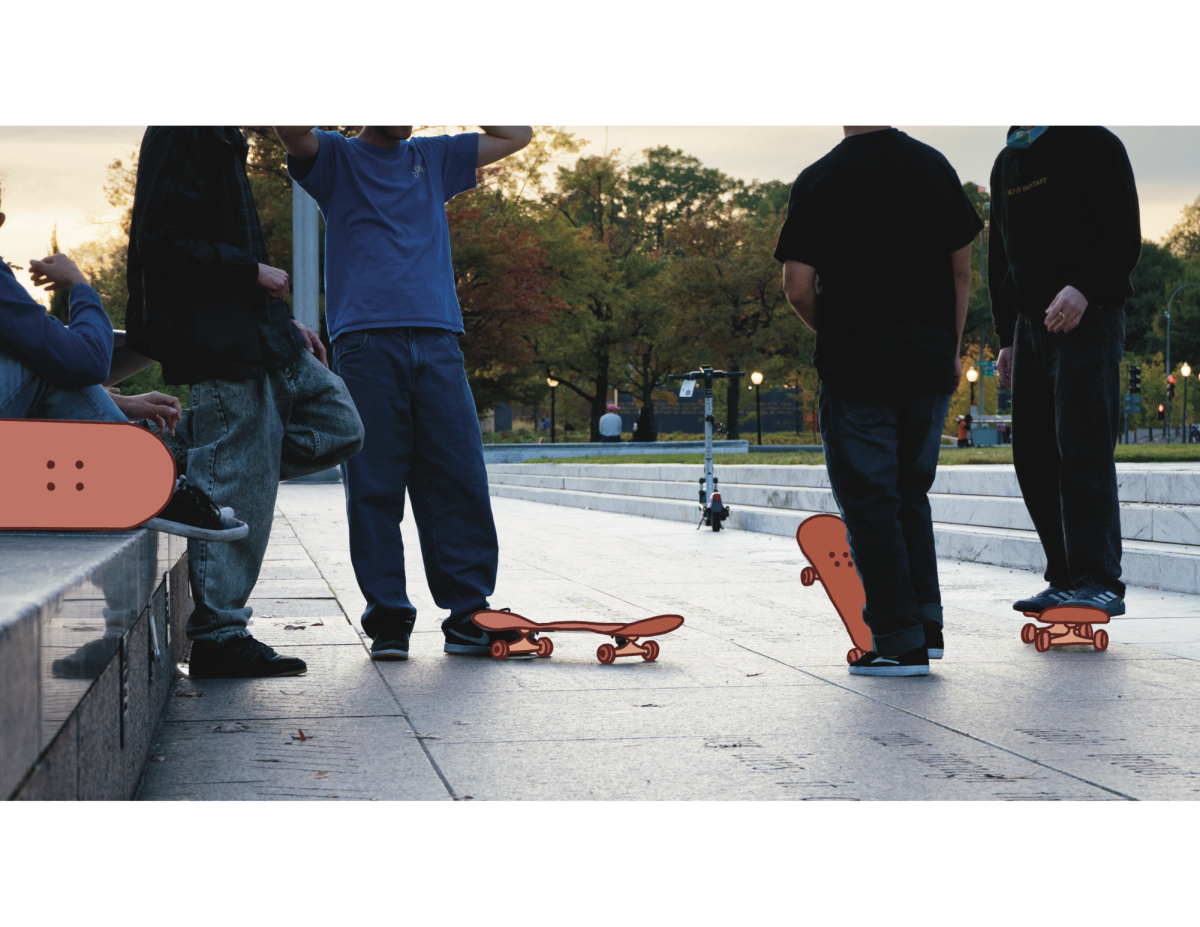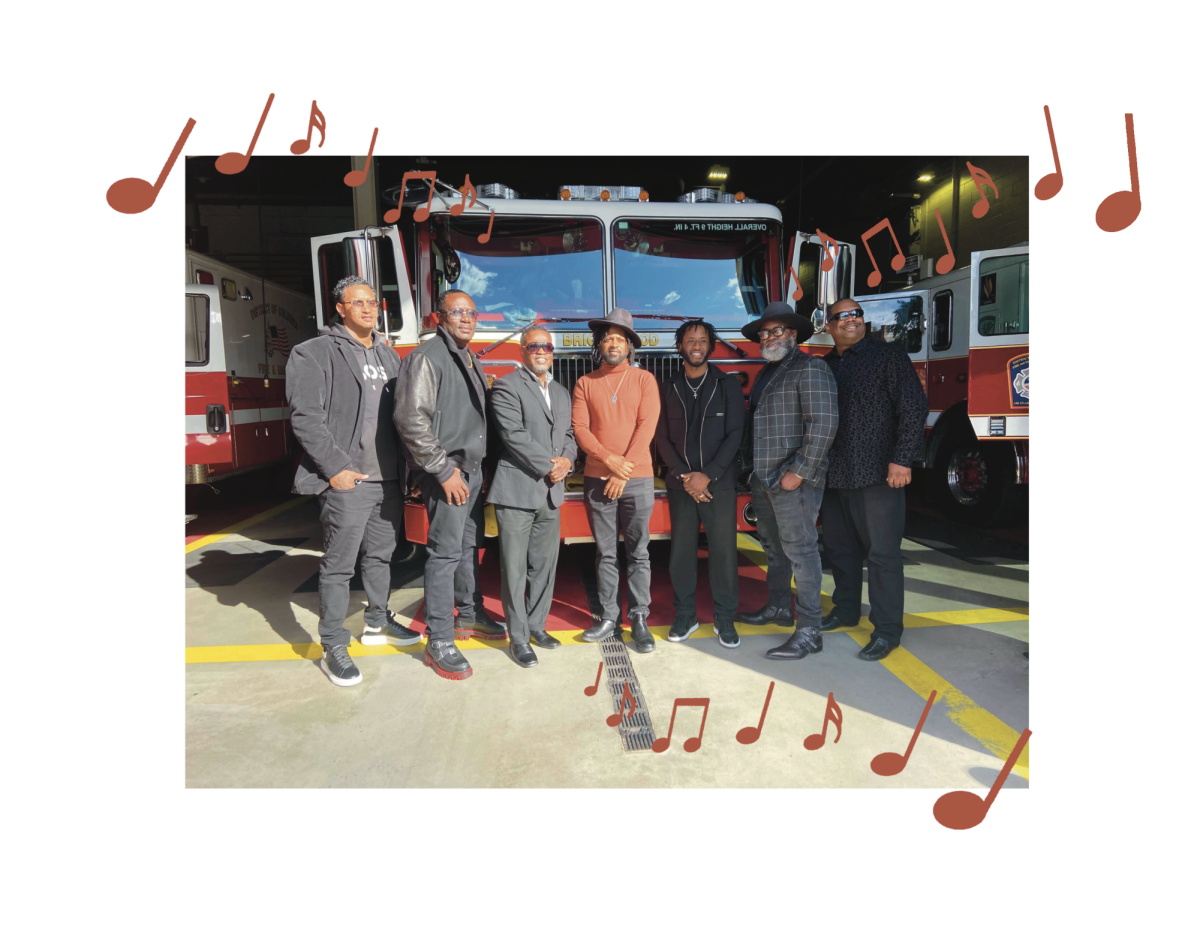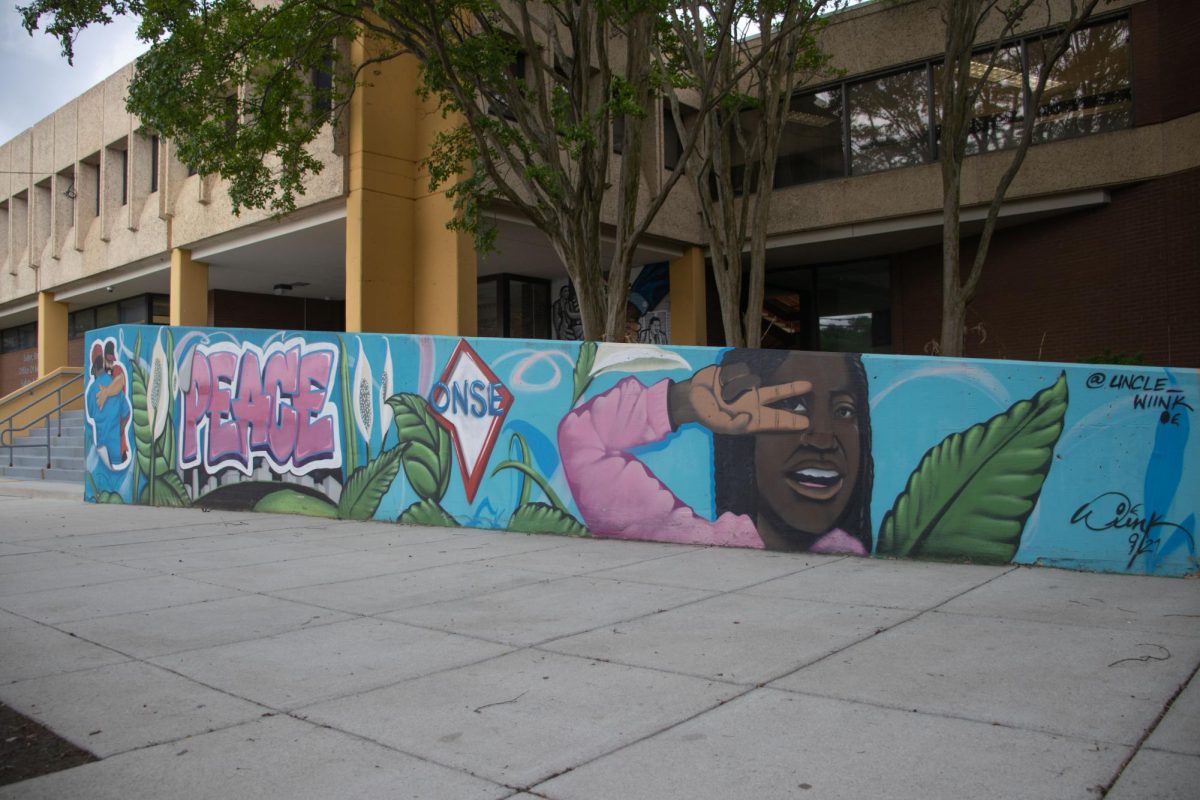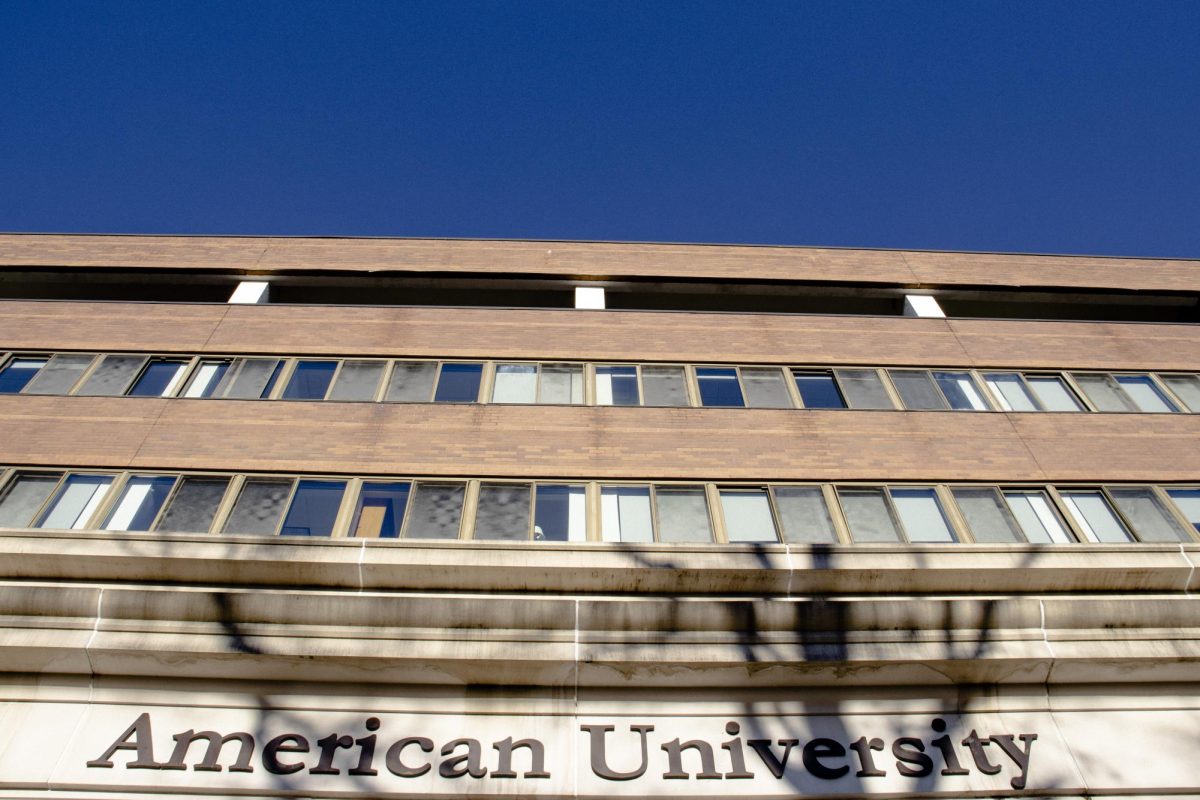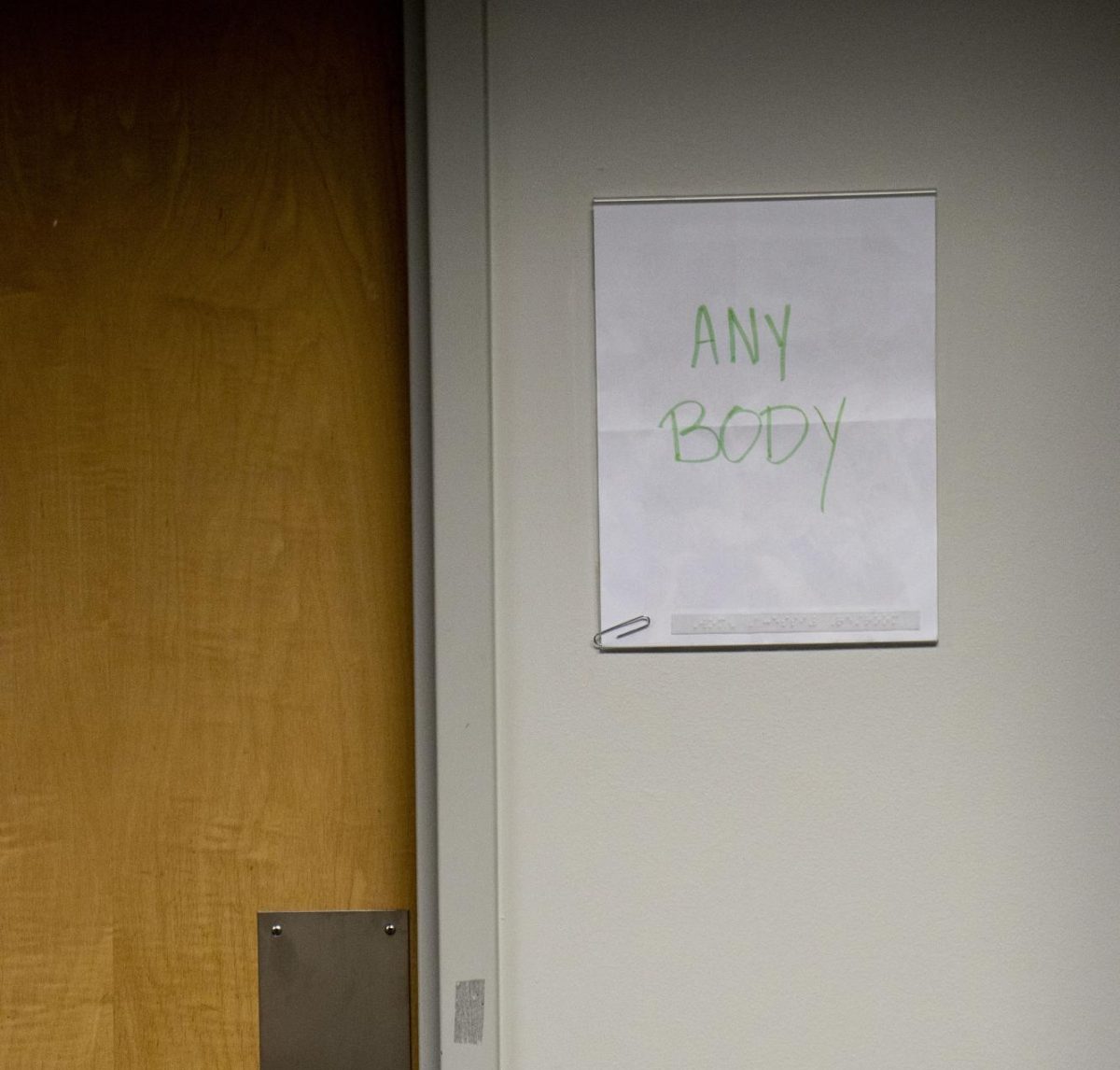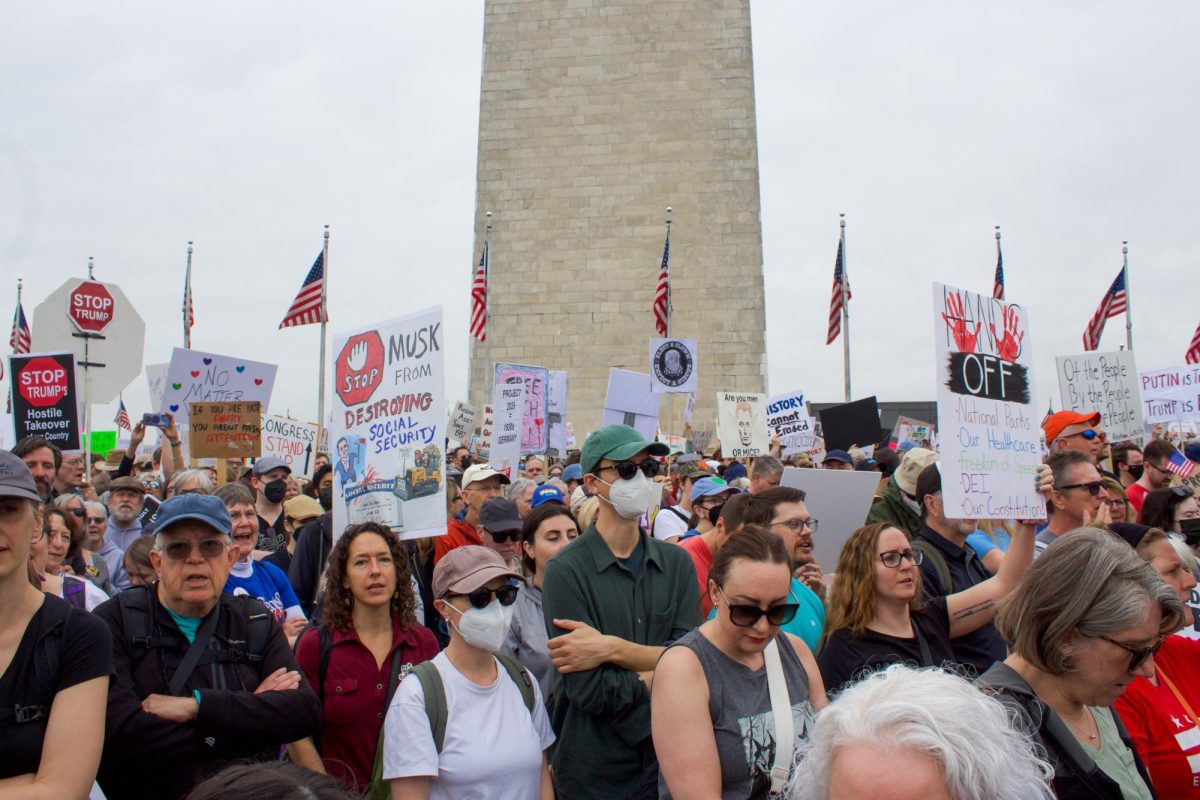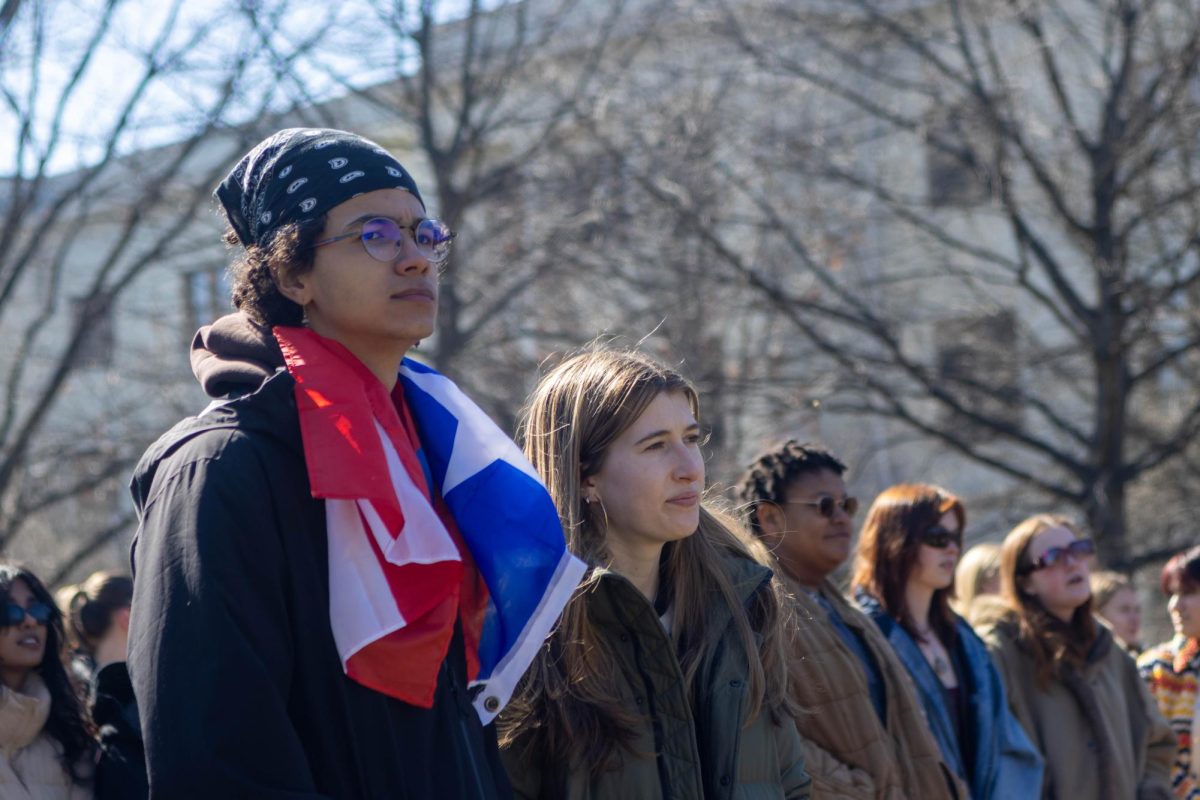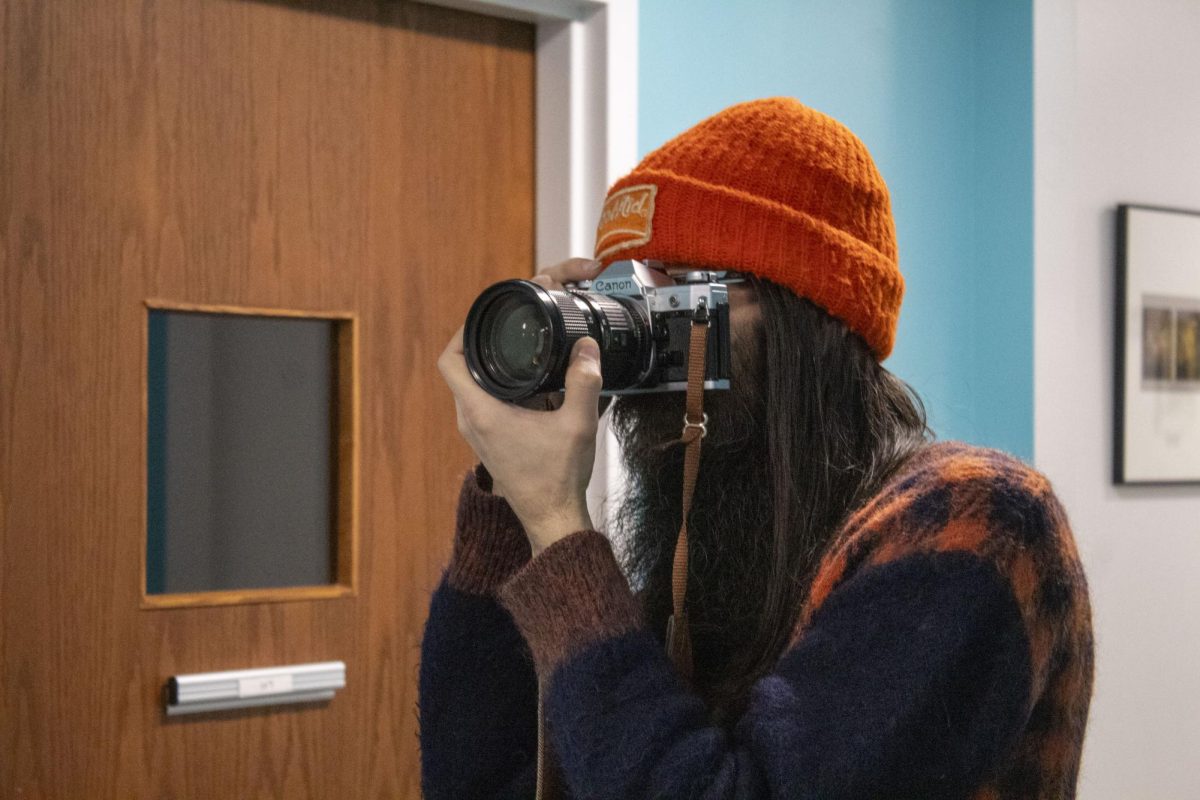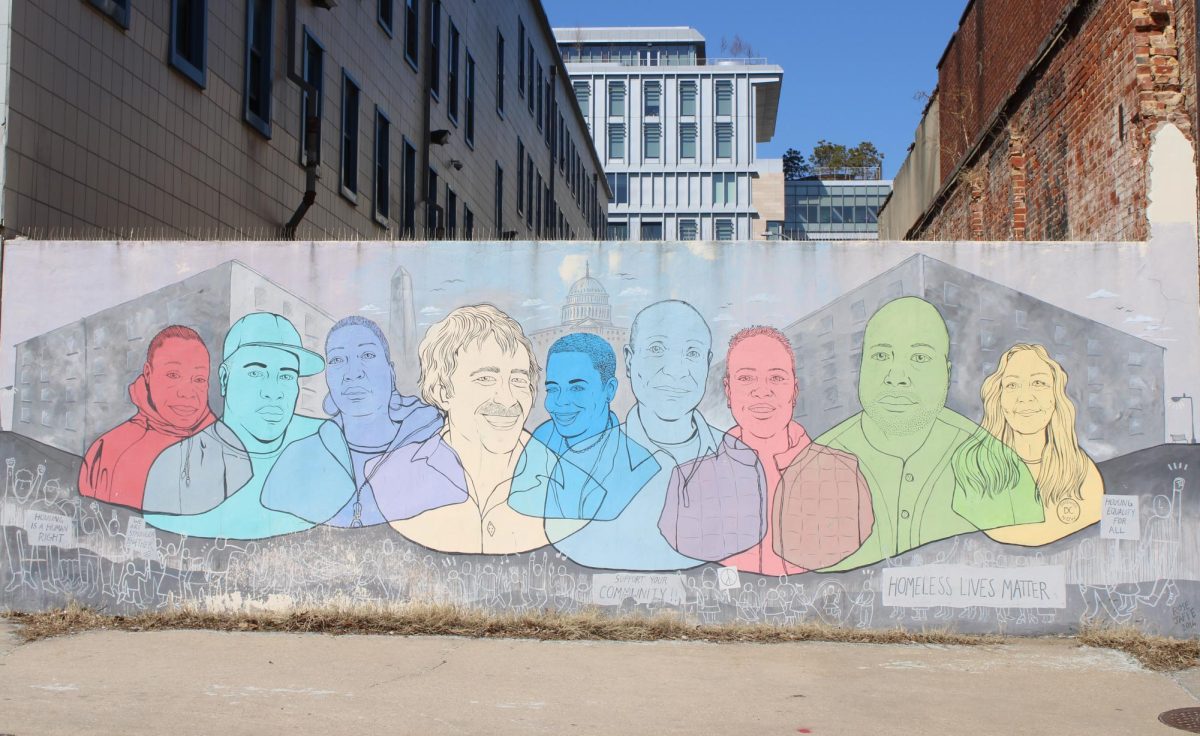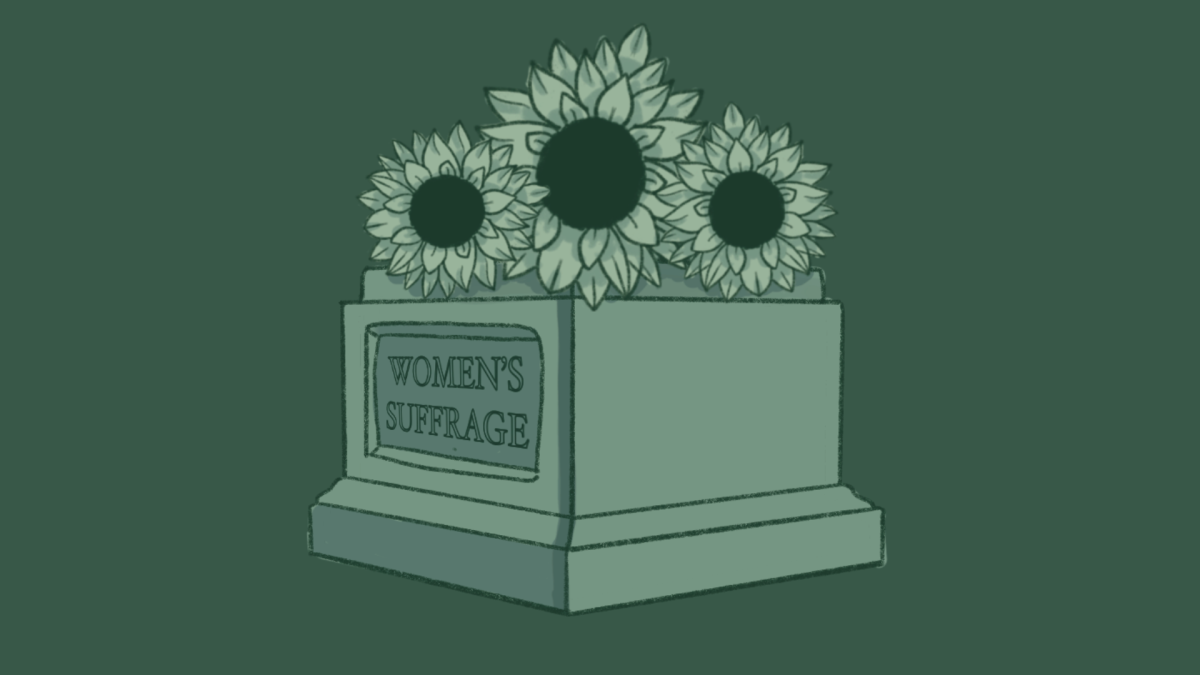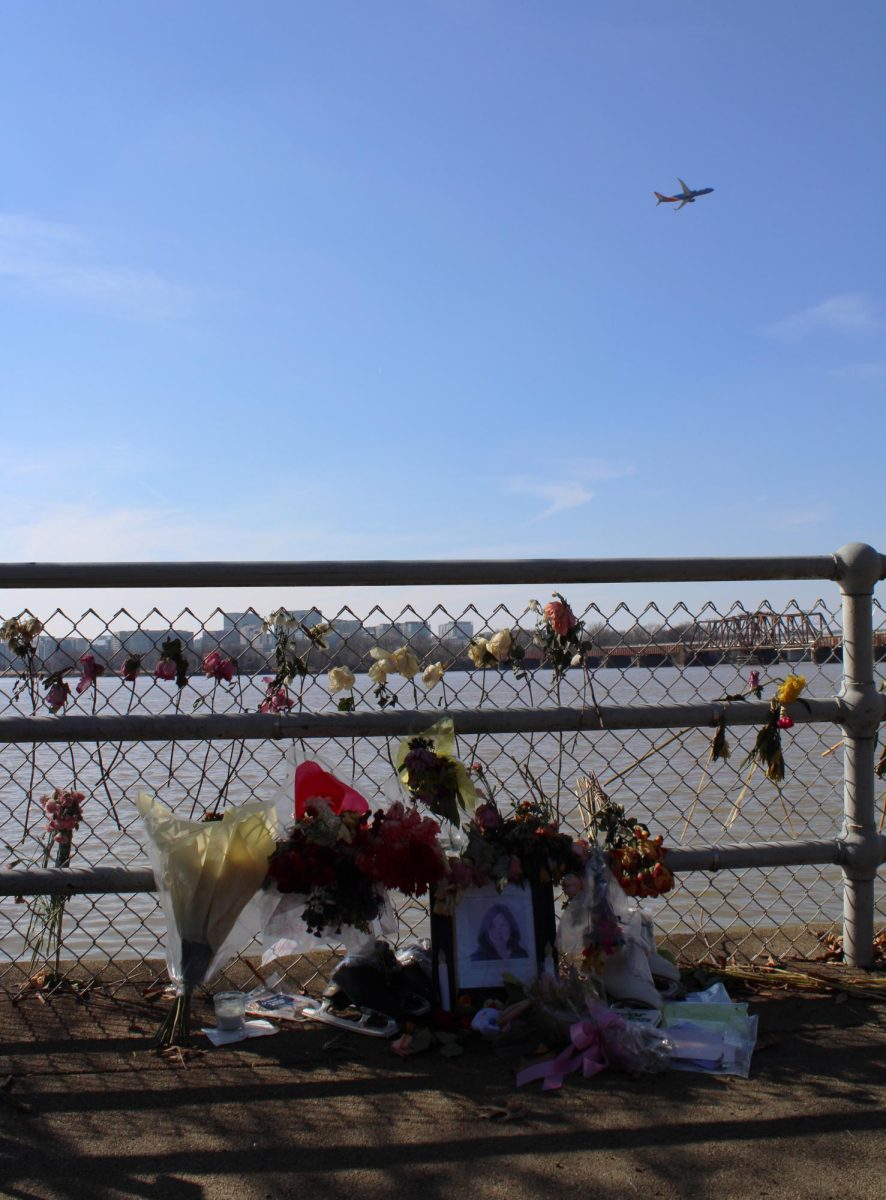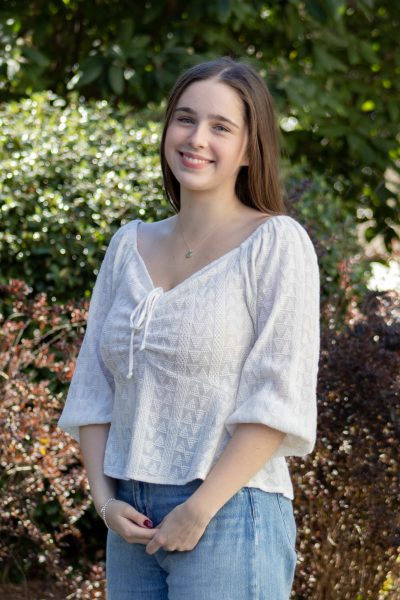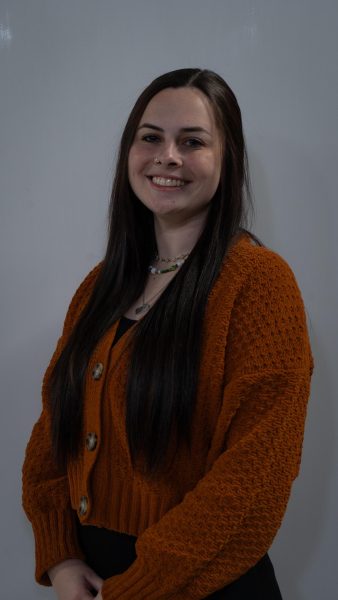Thomas Cortez said that he didn’t realize the lifesaving capability of Narcan – until he knew someone who overdosed.
The medication saved their life.
A Tennessee native and a student in Washington, D.C., two places where over- doses abound, he was upset not to have known about Narcan. Cortez said this in- spired his passion for increasing its accessibility.
“It was something that kind of opened my eyes to how prevalent this issue is,” Cortez said. “Whether or not you’re the person that is actually the victim of the overdose itself, it does have a wide-ranging impact.”
Narcan is a nasal spray that works to reverse the effects of an opioid overdose. Binding to the opioid receptors in the brain, naloxone – the compound of which Narcan is composed – inhibits the ability of an opioid to affect the body’s functions, according to the National Institute of Drug Abuse.
American University does not yet provide the necessary accessibility for Narcan, Cortez said. AU said in an Oct. 19 email to the community that the university is exploring the possibility of providing Narcan on campus.
With opioid overdoses in the District on the rise, American University students have been at the forefront of fighting for Narcan accessibility across campus.
In April 2023, a 19-year-old woman was faced with a life-threatening experience when she nearly died from an overdose in McDowell Hall, according to an April 2023 article by WUSA9.
As a response to the overdose, 578 people submitted a petition to AU President Sylvia Burwell and two counseling and prevention specialists who worked in AU’s counseling center.
The petition stated that many AU students supported making Narcan available in all dorms. It emphasized Narcan’s safety and provided examples of universities that have successfully implemented Narcan programs, including Columbia University, the University of Maryland and Bridgewater State University.
“To wait to implement Narcan at AU is unethical and deadly,” the petition said.
In September 2023, two Narcan training and distribution events were held by the Center for Well-Being Programs in Mary Graydon Center, according to Engage. The second training, attended by an AWOL reporter, included an overview of overdose statistics in the District and a demonstration of how to administer Narcan in the event of an emergency.
The District had 411 overdoses in 2020, over a hundred deaths higher than the six previous years, according to Live. Long. D.C.
Now an AU alumnus, Cortez is the former executive advisor of the SIS Graduate Council. In the 2022-23 academic year, the council organized two Narcan training events on AU’s campus, Cortez said. Through a partnership with the Wards 3 and 4 Prevention Center, which supplied resources for the event, the council provided students with a two-minute training session and their own Narcan.
“With the current prevalence of fentanyl, as well as tranq and other drugs, getting into college systems and making their way across the United States, it’s extremely important to ensure that college students have access to these lifesaving drugs,” Cortez said.
Many trainees have already used the Narcan supplied to them by the training to save lives, Cortez said.
Through the Center for Well-Being Programs and Psychological Services, AU has also sponsored its own naloxone training.
Aside from this training, Cortez said that he hasn’t seen enough work done by the university to provide overdose prevention resources to students. The amount of student action, he said, may be reflective of this inaction.
“I think the fact that a student-led group had to be the one doing it in the first place is kind of stark and unacceptable,” Cortez said. “There should be widely available resources on campus.”
Matthew Ellis, assistant professor of psychiatry at Washington University School of Medicine, said that Narcan saves lives, especially on college campuses.
“It’s definitely one of the most import- ant and effective routes of saving lives,” Ellis said. “I mean, that’s really what Narcan is about. It’s about saving lives.”
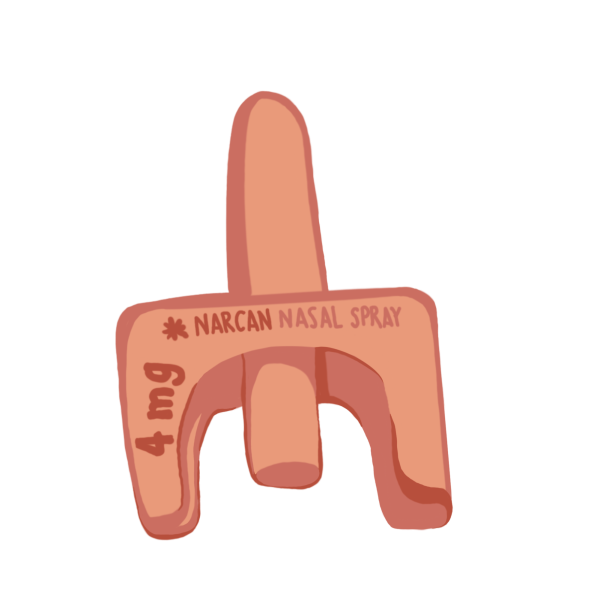
Ellis said Narcan access is important for students given the prevalence of drug experimentation on college campuses.
“We know that a lot of substance use starts in college, that there’s a real risk there that someone may ingest something, and so I think having Narcan freely accessible is a necessary situation to have on campus,” Ellis said.
AU alumna Lillian Frame, who signed the petition, said she wants to see the school directly implement Narcan to alleviate the burden placed upon students when it comes to responding to opioid overdoses on campus.
“A lot of it falls, as literally everything else does at AU, onto the students who are educating each other and helping each other,” Frame said.
Frame said she hopes for Narcan training to become a standard part of the university curriculum and for AU to distribute Narcan kits to all individuals on campus.
“We have AUx, everyone takes AUx,” Frame said. “Get everyone Narcan trained at AUx and give them Narcan. Teach every single person who is on our campus how to use Narcan and carry it around. I want to see frickin’ Narcan vending machines on campus.”
Frame said she expects more from Burwell when it comes to Narcan access.
“I think that the university especially, you know, with who our current President is, this is something that we should know,” Frame said.
Burwell was the Secretary of Health and Human Services in September 2015 when the Department of Health and Human Services announced a $1.8 million grant fund through the Rural Opioid Overdose Reversal (ROOR) Grant Program in order to equip first responders with naloxone injections and train them in its use, according to a White House blog post written by Senior Policy Advisor Doug O’Brien.
The program saved over 300 lives, ac- cording to a report from the Organization of State Offices of Rural Health in April 2017.
Soon after, Burwell’s department expanded the budget for funding naloxone-related relief to combat this crisis, funneling $12 million into the Rural Opioid Overdose Reversal Grant, according to a 2016 White House Press Secretary release.
In an October 2015 release written by Assistant Secretary Richard Frank, naloxone distribution was called a “priority” of Burwell’s department.
“I haven’t seen any evidence of her doing anything health and human services related on this campus,” Frame said, referring to Burwell.
Frank didn’t respond to a request for comment and the AU Communications Office did not respond with a comment on behalf of President Burwell.
J.R. Denson, the alcohol and other drugs prevention specialist for the Counseling Center, headed the two Narcan training and distribution events in September. He said that Narcan accessibility has been in the works with the Center since before he took his position at AU.
Denson said that the center began conducting this training for the benefit of the campus community.
“This is a public service,” Denson said. “It’s a good thing for people to know to how to do, to want to help someone that might be in need.”
Student interest was a motivating factor for the center’s training, Denson said.
“As long as students are interested, we’re going to host programming that they want to see,” Denson said.
Denson said to attendees at the training that the Counseling Center had sought to obtain status as a Narcan distribution hub, but had encountered hurdles in that process.
“My understanding is that we are ineligible based on our private institution status, and that only nonprofit community-based organizations are eligible to be distribution hubs,” Denson said, speaking after the session.
The AU legal department was not made available for comment. It remains to be determined whether or not the university would qualify to be a distribution site under D.C. policy.
According to an excerpt written by its Health Promotion and Wellness Services and published on Engage, the University of Maryland was able to obtain status as a distributor through the Maryland Department of Health. Although the University of Maryland is a public institution, universities like Columbia have gained access to naloxone programs in the same way, ac- cording to Columbia Health.
In an Oct. 19 email from Chief Financial Officer Bronté Burleigh-Jones and Vice President of Student Affairs Raymond Lu Ming Ou, the university announced its plan to broaden access to Narcan through additional Counseling Center training.
“As part of our harm reduction strategy, we are exploring the feasibility of providing placements of naloxone boxes, supplied with Narcan, across campus,” the email said.
Burleigh-Jones and Ou said that the university will work with members of the AU community to consider implementing supply locations. The Oct. 19 email said AU police officers would also be equipped with Narcan and AU will host additional Narcan training.
Although university-sponsored training is set to continue, some students have said they have concerns about a lack of visibility of the training conducted by the university.
“At one point, the Student Health Center tried to do a training and didn’t advertise, didn’t work with us, despite the fact that we had had a wildly successful event in the fall,” Cortez said.
Cortez said an increase in awareness would allow students to benefit more from university Narcan events but that the fight against overdoses remains in students’ hands.
“It seems like we often have such a reactive approach to everything on this campus, that it’s worrisome that we’re going to end up seeing a student either pass away or have more students OD on our campus before anything is finally done,” Cortez said.
Cortez said in an October 2023 comment to AWOL that he was skeptical of the university’s updated Narcan policy.
“Despite their statement trying to say otherwise, American University has not shown any commitment to increasing access to lifesaving Narcan,” Cortez said.
With the help of other organizations, the SIS Graduate Council was able to reach around 1,300 members of the AU community in fall 2022 and spring 2023, Cortez said. He said he’s proud of its work.
“It is clear that student leaders will have to continue taking leadership on this issue until the university decides to take it seriously,” Cortez said.


